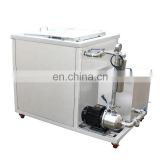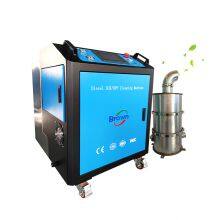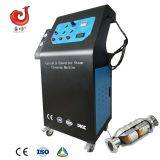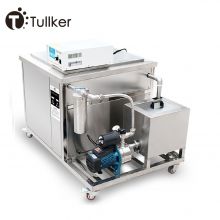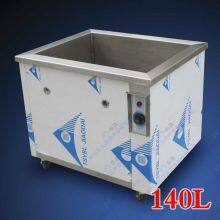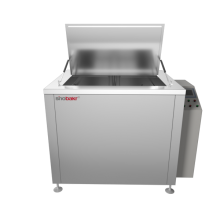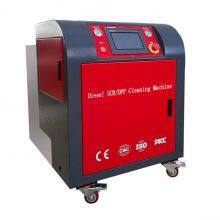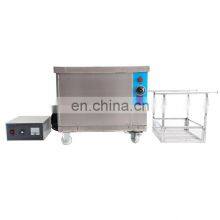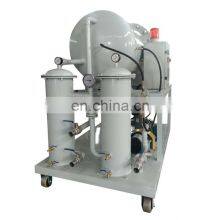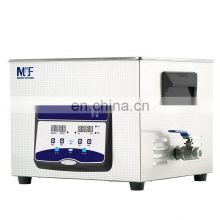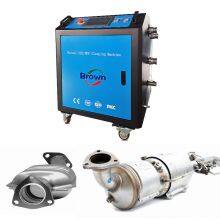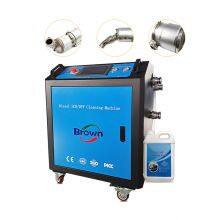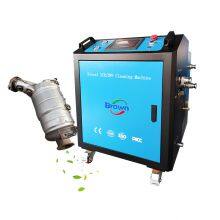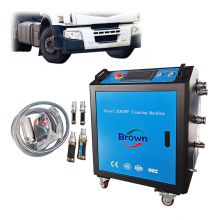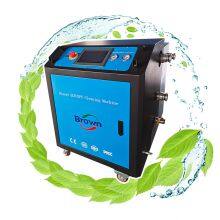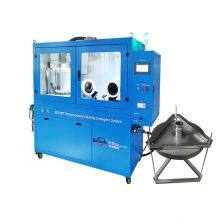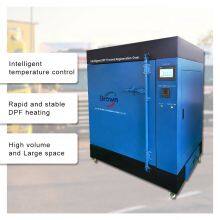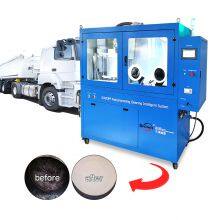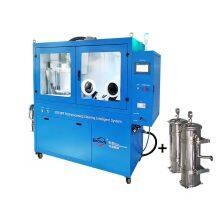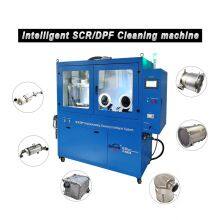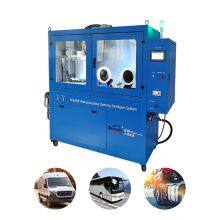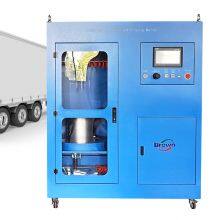Maximizing ROI is crucial in today’s world, especially for businesses with large fleets. Total operational efficiency of a fleet is critical, especially in minimizing downtime as well as maintenance costs, which can be achieved using a Diesel Particulate Filter (DPF) cleaning machine. These machines effectively clean diesel particulate filters that capture soot and ash from the exhaust of a vehicle, maintaining compliance with emission regulations while improving the performance of the engine. Investing in high-quality DPF cleaning equipment greatly improves the operational efficiency of the fleet while also meeting environmental requirements.
A Diesel Particulate Filter (DPF) forms part of the exhaust system in a diesel engine vehicle. It traps soot and particles, from which these are scrubbed off and not released into the environment. With time, the filters need to be cleaned due to being clogged up with soot and ash, as well as cleaning is important for the proper functioning of the filter. This cleaning process is aided by a DPF cleaning machine, ensuring optimal filters work as good as new. These machines utilize modern cleaning technology, which obliterates the built-up particulates and so extends the lifecycle of the DPF as well as improves the performance of the vehicle.
Water-based DPF cleaning machines apply water-based solutions to clean diesel particulate filters. This approach is eco-friendly, and restoring a filter’s ash and soot buildup is highly effective without damaging it. Aqueous cleaning systems are suitable for cleaning several filters at once, which is beneficial for fleets that undergo regular servicing. Including an Aqueous DPF Cleaning Machine in your maintenance schedule cleans the filters while preventing expensive repairs, making sure your vehicles are emission compliant.
Keeping the fleet effective hinges on the cleaning process. Regularly cleaning the DPFs helps prevent blockages which cause fuel consumption to rise and engine power to drop. Optimal operational efficiency and fuel savings can be achieved with clean DPFs. In addition, a DPF that is clean and well-maintained has a lower risk of unexpected breakdowns, which reduces downtime and keeps the fleet operational. Strategically investing in a dependable DPF cleaning system will greatly improve overarching fleet productivity and ROI.
Selecting a DPF cleaning machine requires consideration of some critical specifications such as the machine's capacity for cleaning, its range of compatible filter types, and cleaning methods. A high-end DPF cleaning system should permeate all soot and ash as well as dry the filter, offering full cycle cleaning. Furthermore, a drying cabinet and multiple adapter sizes for different filters to suit various fleets are helpful features. Opting for these specifications guarantees a DPF machine that adequately meets operating demands and improves soot cleaning productivity.
Each approach to DPF cleaning has its pros with the use of aqueous and thermal systems. Gentle for cleaning, water based cleaning is safe and efficient for routine upkeep, preventing any filter damage. Unlike these, thermal DPF cleaning systems, which frequently utilize DPF thermal ovens, “cook” soot and ash at extreme temperatures, deep-cleaning them. Knowing the specific advantages of each method helps fleet managers select the best option according to their needs for effective filter cleaning and maintenance.
Investing in cleaning equipment, such as DPFs (Diesel Particulate Filters), is always a difficult decision. For fleet managers, balancing the cost of various cleaning systems versus their efficiency and lifespan is of greatest importance. The DPF cleaning machine, when maintained properly, increases filter lifespan and reduces fuel consumption, maintenance costs, and overall DP cleaning expenses in the long run. Many fleets stand to benefit greatly from an ROI analysis that highlights the impact of various DPF cleaning solutions and guides investment decisions. An ROI comparison highlights the long-term benefits and assists fleet managers in making informed choices.
A DPF Cleaning Machine is an equipment specifically used to clean soot and ash from diesel particulate filters (DPFs). It is critical for the maintenance, efficiency and longevity of DPFs, which are needed for emission control on diesel engines. Right DPF cleaning equipment can greatly improve ROI for businesses by prolonging the life of their filters, reducing downtime, and meeting compliance requirements for environmental regulations.
A DPF Cleaning System has multiple steps for the cleaning process. First, the filter undergoes an inspection and preparation step, which is then followed by the removal of soot and ash employing different cleaning methods such as aqueous or thermal cleaning. Rounding out the cleaning cycle, a comprehensive drying step, oftentimes in a drying cabinet, ensures the filter is prepared and dry for reinstall. Restoring the filter to optimal performance through this extensive cleaning process maximizes ROI.
Thermal DPF cleaning systems are effective in accomplishing deep cleans and enhancing the overall functionality of the DPF by extending its service life. Thermal systems are especially useful for heavy-duty uses of DPF, as they are slower to break down over time. These systems also improve cost efficiency for maintenance since they minimize downtimes and increase filter performance.

